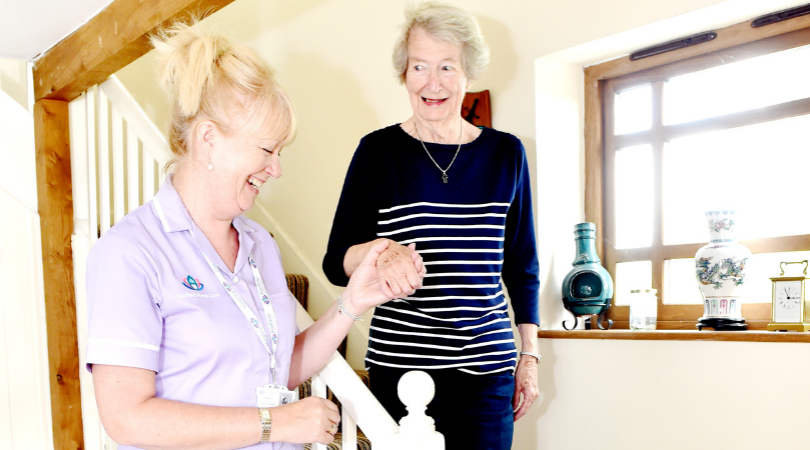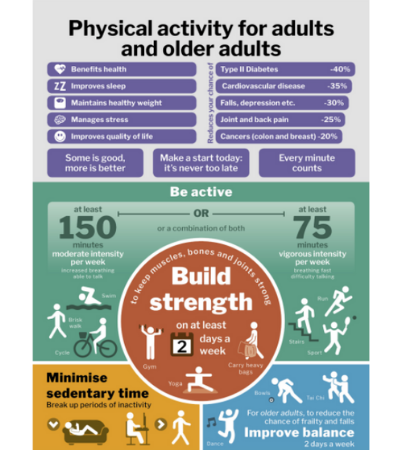
National Office
Please enter the office location/term above to receive results for your closest office as well as information matches
For many weeks, we have all been in anticipation of what the UK government roadmap out of lockdown will look like and how it will affect us. For most, it has created excitement around seeing family and friends and perhaps now looking forward to a visit to the pub, hairdressers and a bit of retail therapy!
With excitement, now comes an element of anxiousness for older people, as for some, their homes have been a safe place with mobility restricted.
Radfield asked Chartered Physiotherapist, Helen Tinsley MCSP, owner and founder of Stone Physio to share some professional advice on improving your mobility as restrictions are lifted. Helen explains:
According to a 2020 report by the Office for National Statistics, “The over 65’s make up 12.4 million of the UK population” and “physical activity is an important factor in maintaining good physical and mental health into old age”.
In the wake of the pandemic, large numbers of older people, particularly those living with multi-morbidity and frailty, have felt the impact of lockdowns and social isolation, leading to a reduction in their usual activity, resulting in loss of strength, balance deficits, increased risk of falls and worsening frailty (De Base et al 2020;Age UK 2020).
Covid-19 lockdowns have impacted on access to physical activity and exercise services that older people may have relied upon such as exercise groups run by u3a, leisure centres, swimming pools. Socialising in groups has not been allowed for example Probus, WI and bridge clubs to list just a few.
I have spoken to a few patients about this recently and they report trips out to the hairdresser, the bank, shops, and lunch with friends have all had a big impact on going out and their resultant lack of activity which had led to them feeling less motivated, less active and a reduction in feeling positive which has produced a vicious circle of more inactivity.
Impacted on this, there has also been a factor of fear by watching news reports which has had a negative impact on wanting to go out and an increase in loss of confidence.

Pictured: UK Chief Medical Officer’s Physical Activity Guidelines
The UK Chief Medical Officer’s Physical Activity Guidelines recommends that older adults should aim to accumulate at least 150 minutes of moderate activity a week, undertake activities to improve or maintain muscle strength strength, balance and flexibility on at least two days a week and break up prolonged periods of being sedentary with light activity.
Falls are a precipitating factor for loss of independence and admission to long term care for the ageing population, preventing them is a public health priority, and targeted, evidenced-based strength and balance exercises can reduce rate and risk of falls (Sherrington et al 2019).
In 2016, a 13 year study concluded that total muscle mass decreases by nearly 50% between the ages of 20 and 90. On average, people lose about 30% of these strengths between the ages 50 and 70, and another 30% of what’s left per decade after that.
Regular physical activity is a good strategy to attenuate age-related decay of muscle structure and function. If individuals stress their muscles and remain active as they age, the loss of physical capabilities and independence in the older population could be thwarted.
Flexibility is another area to work on with exercise. The loss of flexibility with ageing is faster in some of the major body joints than in others. The trunk and shoulders, followed by the hips are the areas most affected by ageing.
Advice from Age UK on coping with lockdown easing suggests that older people may feel anxious about the easing of restrictions. After months spent indoors, one may feel unmotivated to start going out or socialising again, no matter how much friends and families have been missed and that it is important to do it at their own pace and to take small steps at a time and focus on doing a little more each day.”
Resources recommended by Helen for exercise programs and advice booklets
If you would like to find out more about Radfield Home Care and the care support services offered, you can visit www.radfieldhomecare.co.uk or contact your local office.
Get in touch with your local Radfield Home Care office today and find out more about the support we offer and the difference we can make.